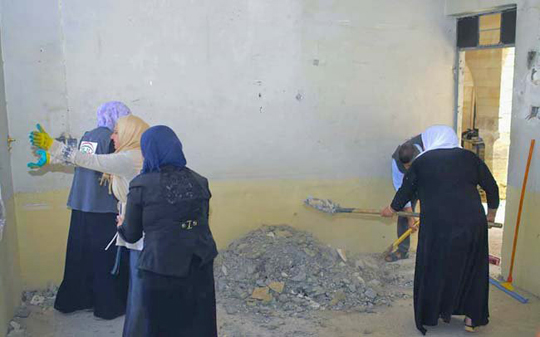Jeddah, Jun 1: Muslim neighbors in Iraq helped rebuild a church that had been destroyed by Daesh militants.

In a gesture of solidarity, Iraqi volunteers helped their Christians neighbors, who are still encountering abuse by Daesh, and rebuilt what was once their house of worship.
They wanted to prove that Iraq, their home, welcomes people of all faiths, not only Sunni Muslims.
Mosul residents wanted to show their Christian peers that this city (Mosul) “is your as it's ours,” and that their religious affiliations do not matter, rather their strength lies in those differences.
While occupying Mosul, Daesh desecrated Christian churches, ancient texts and statues.
The extremists degraded one of the smallest and oldest Christian communities in the world.
In 2014, residents said the militants, who declared a caliphate headed by Abu Bakr Baghdadi, spray-painted Christian houses with the letter “N” in Arabic, which stands for Nasrani, or Christian, to identify them.
In Al-Arabi district, where the Mar George monastery is located, the Chaldean Church was shot up and severely damaged by Daesh militants, and then left in extreme disrepair after the militants were pushed out of the district by Kurdish forces.
After a false rumor spread in the community that Muslims were harassing a Christian family, Muslim volunteers decided to prove the accusations wrong and rebuilt the church from rubble.
In a message of unity, the Iraqi Muslim neighbors were seen cleaning the area and repairing the holy space and rooms. Photos of their work have been shared across Facebook.





Comments
Add new comment